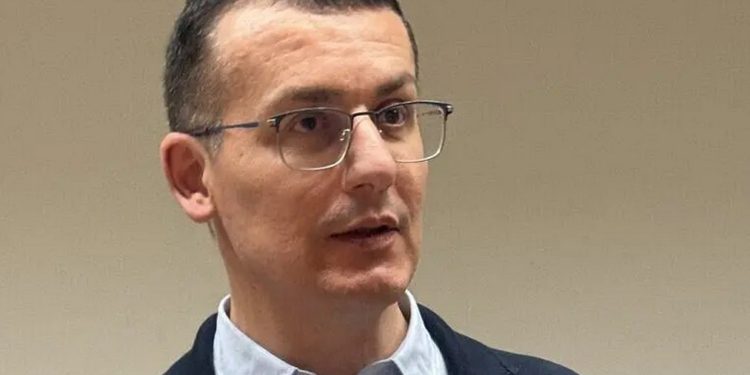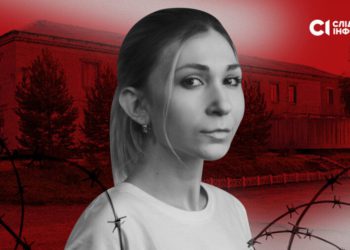While in Germany, the President of the National Union of Journalists of Ukraine, Sergiy Tomilenko, spoke in an interview with colleagues from the Bavarian Journalists’ Association (Bayerischer Journalisten-Verband e.V. / BJV) about the difficult working conditions Ukrainian media workers are facing during the war and urged his European colleagues not to forget about Ukraine in their publications.
The day Sergiy Tomilenko left Kyiv for Munich began with an eight-hour air raid alert in the Ukrainian capital. Russian drones damaged buildings in five districts of the city; people were injured. “This is our daily reality,” the NUJU President noted.
“There is no safe place for journalists in Ukraine, as well as in Kyiv… If light appears for a few hours, journalists use this time to write reports or print local newspapers,” Sergiy Tomilenko emphasized.
According to him, after the russian invasion, 40% of media companies were forced to stop working due to economic problems. About 20% of media workers were evacuated from their hometowns and were forced to leave their profession due to the inability to earn a living. The majority of journalists, however, remain in Ukraine.
At least 108 media workers have been killed since the start of the full-scale invasion, 18 of them while performing their professional duties. The latest victim was 28-year-old Ukrainian journalist Victoria Roshchina, who disappeared in August 2023 and died in russian captivity on September 19, 2024. Currently, more than 30 media workers and citizen journalists are in captivity, including five women. They are being tortured and accused of terrorism.
According to Sergiy Tomilenko, all Ukrainian media are currently working under extreme strain. Many cannot stand it and leave the profession. As the largest professional association of media workers, the NUJU is trying to support their colleagues. The NUJU has created a network of six Journalists’ Solidarity Centers (JSC) that support local and foreign journalists in emergencies. The JSCs provide security training, provide free rental of protective equipment, and conduct various training sessions. This is a place where journalists can meet, communicate, and work.
Sergiy Tomilenko drew particular attention to the work of local newspapers in frontline areas. Thirty-two local publications have resumed printing near the front line with the assistance of the NUJU. Journalists, risking their lives, deliver them to villages where mostly elderly people have remained. In the absence of electricity, communications, and the Internet, print media remain the only source of information that literally saves lives, providing up-to-date data on evacuation plans and humanitarian aid.
Regarding freedom of the press in Ukraine, the head of the NUJU noted that there is no open censorship, but it is worrying that the government financially supports only large TV channels.
“We are concerned that the government financially supports only large broadcasters that it controls, but not small regional media companies. These small media are not strong enough economically to survive in the long term without external financial support,” Sergiy Tomilenko noted. “We demand that international assistance contribute to preserving press freedom in Ukraine, including accountability.”
In conclusion, Sergiy Tomilenko appealed to his German colleagues not to let Ukraine disappear from newspaper columns, reports, and news feeds and to continue sending correspondents for authentic coverage of events. “When an air raid siren goes off on our smartphones, it is not just a warning for us in Ukraine. It is an alarm signal for all of Europe,” he emphasized.

 THE NATIONAL UNION OF
JOURNALISTS OF UKRAINE
THE NATIONAL UNION OF
JOURNALISTS OF UKRAINE
















Discussion about this post